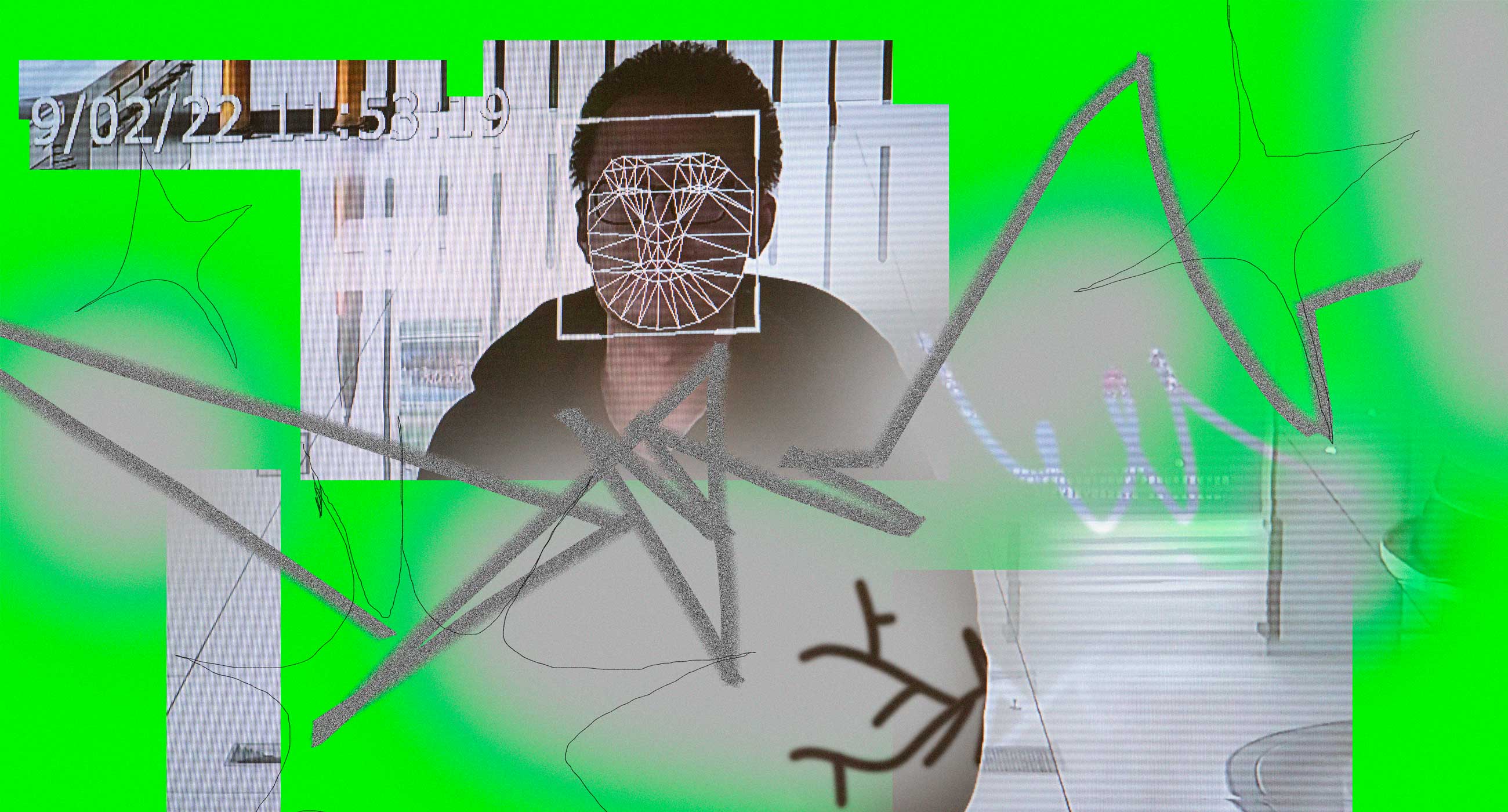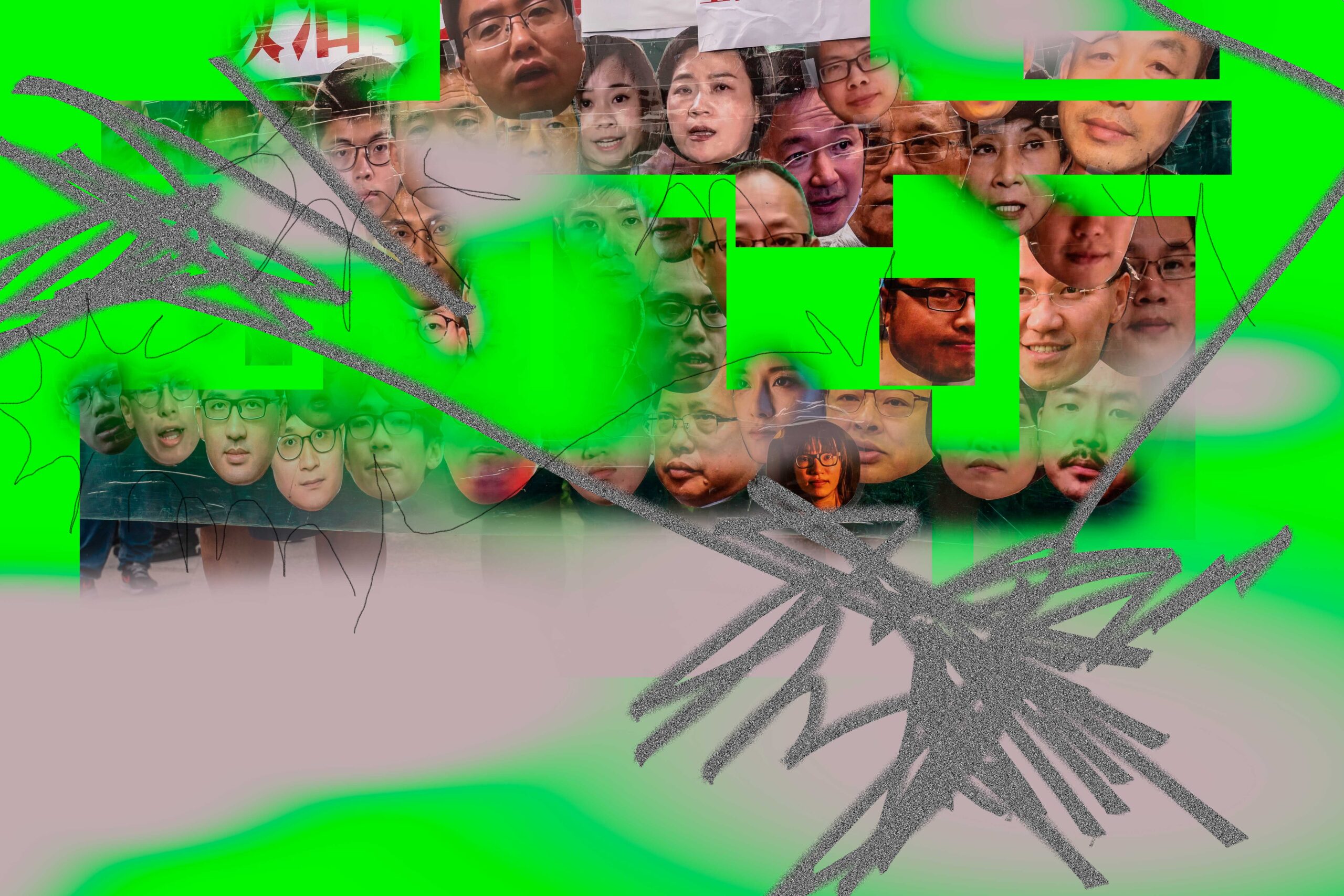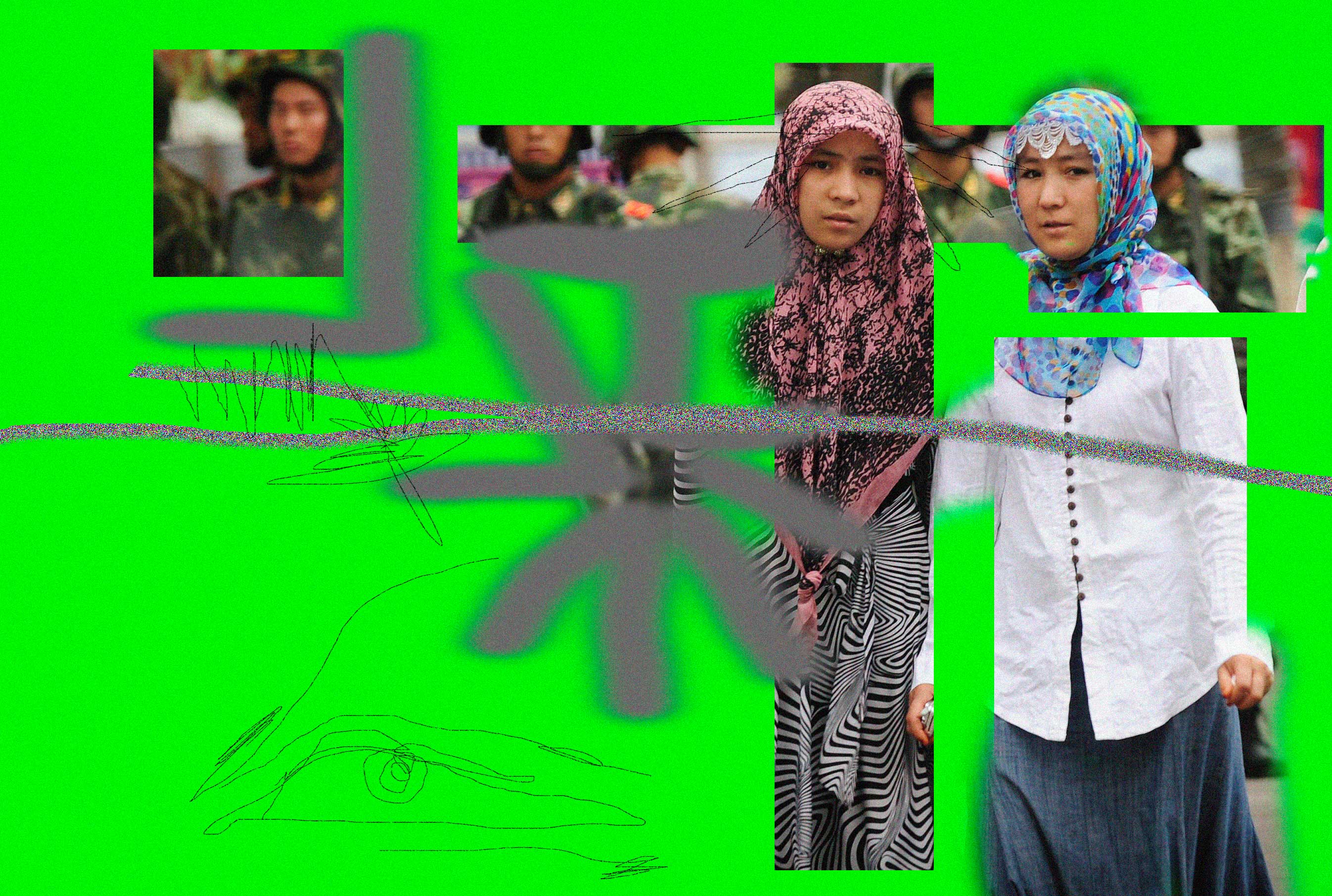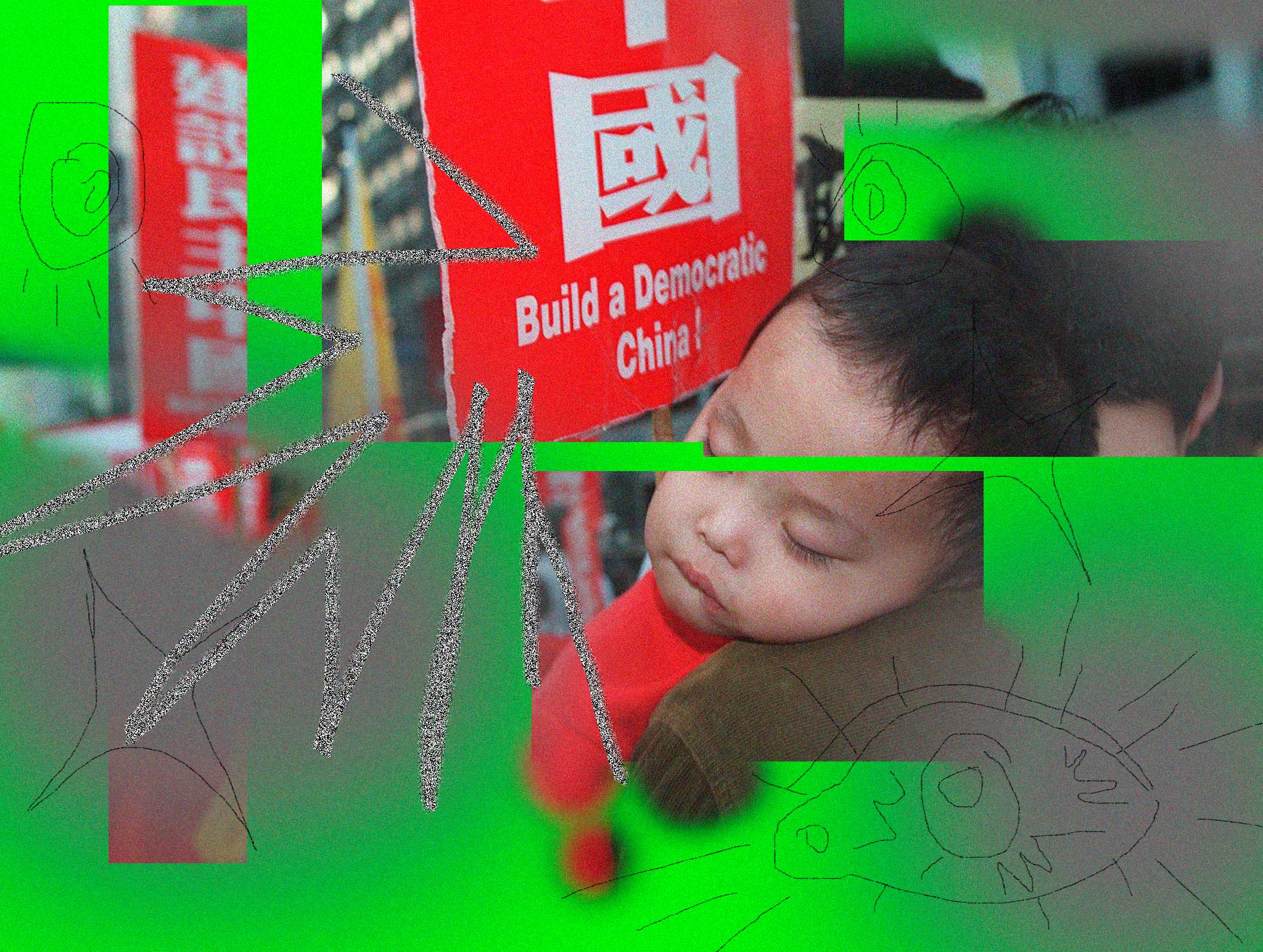Cyber Dragon: 4 Principles of Social Governance in China’s Digital Authoritarianism

A couple days ago, China again started military exercises near Taiwan (here is the article we wrote about the latter’s successful digital democracy and how this island country can remind Ukraine). China, in its turn, resembles Russia — an imperialist state with developing digital authoritarianism. Zaborona asked technology philosopher Serhii Zhdanov to explain how the Chinese Communist Party designs citizen behavior and censor internet trends, as well as why it spreads memes promoting the 12-hour work day and prevents internet users from eating bananas erotically.
The new digital age began with the war. Not only a kinetic but also an ideological and economic war is going on between two models of the future structure of society: digital autocracy and digital democracy. The Ukrainian war embodies this confrontation: right now, we are fighting for a digital democracy against the neo-autocracy that emerged in Russia.
New technologies push humanity to rethink a state’s role: is it a tool in the hands of citizens, which should provide them with more and more freedoms and rights, or an “elder brother” and a leader of a subordinate helpless people?
The headliners of digital democracy are the USA, the EU, and Taiwan: with the development of 21st-century technologies, society in these countries gained significantly more power and influence. And the main apologist of digital autocracy is China, where technological progress led to the creation of the latest system of surveillance and control over citizens, making them pliable (btw, it is the Chinese model that Russia clumsily copies in its domestic policy).
China’s digital autocracy has been built on a particular view of the human being as a programmed unit that is only part of powerful systems composed of units like him. Talented ones are on the top, dissenters are isolated, and the masses work selflessly at the behest of the Communist Party. There is something like a behavior design program to manage citizens in China, enhanced by the power of new technologies. Here are four principles that distinguish the Chinese approach to the interaction of the state with people from the Western approaches we are used to living in.
I. Digital Authoritarianism
In the 1980s, the top of the party decided to democratize and open the country to capitalism. As a result, in 20 years, China has turned into a global factory producing goods for the whole world. And in the 21st century, China suddenly emerged as a technological leader, received the status of a “superpower with advanced artificial intelligence (AI) systems,” and began to combine the principles of authoritarian rule with the capabilities of new technologies.
The Chinese Communist Party (CCP) is at the center of the digital power of Celestial Empire. Its main goal is to build a communist society of general prosperity and equality. It is impossible to make a successful career in any field without a party ticket. The party has 96 million members (almost 7% of the population) in total. However, the fate of China is decided by the Politburo of 25 people, seven of whom are in an even more privileged circle — Politburo Standing Committee. And finally, one of the seven wields a thundering amount of power — we are talking about the Secretary-General (since 2013, it has been Xi Jinping). It is authoritarianism.
The latter is digital by the fact that the Chinese law enforcement officers are digitalized to the teeth: the country has identity recognition systems, databases about citizens, and access to their correspondence, history of purchases, and movements. AI prosecutors work in Chinese courts, and there are almost 2 million people in prisons (hundreds of them for political reasons) supervised not only by 300,000 live guards but also by neural networks.
-

Pro-democracy activists from the League of Social Democrats hold a banner with political prisoners during a protest in the Wan Chai district on October 1, 2021 in Hong Kong, China. China is celebrating their 72nd National Day and a week-long holiday known as the “Golden Week”.Photo: Anthony Kwan / Getty Images. Collage: Kateryna Kruglyk / Zaborona
Even the representatives of the authoritarian government are monitored by neural networks. In 2017, the party developed the “Smart Red Cloud” — a system for monitoring the party members capable of “calculating” the loyalty of communism backers and their commitment to the party course. It was done, in particular, through the work efficiency analysis, the content of correspondence, and phone conversations. From time to time, purges are conducted based on such data (in 2021, 627,000 officials were punished for “violations of party discipline and laws”).
According to party leaders, one of the reasons for China’s success in its new turn toward autocracy, which began in the 2010s with Xi Jinping’s rise to power. The authoritarian turn of the Dragon has coincided with the explosive development of Internet finance, social networks, and artificial intelligence — in all these areas, Xi’s digital autocracy rose to the top of the world.
The techno corporations such as Alibaba, Tencent, Baidu, Huawei, and Xiaomi were responsible for the technological breakthrough of Celestial Empire. These Chinese companies started in the 2000s by copying American ones, but by 2020 they have turned into world leaders. The founders and top managers of these corporations are closely connected to the party and often have a party ticket. Billionaires like Jack Ma and Pony Ma, who formally belonged to the party, still represent a separate force — capitalist, not party-communist. But in the second half of 2021, the party’s top order decided to reduce the influence of capitalism, and purge the ranks of techno-billionaires. Most of the leaders resigned and disappeared from the public radar to make it possible for top managers approved by the party to take up the place.
II. Behavior Modification
The government influences the behavior of citizens through a system of punishments and incentives built using databases, AI, surveillance systems, and re-education camps.
The developed surveillance system is applied to journalists, foreign students, and other categories of persons who have the potential for disobedience or “wrong” ideologies in their heads. But since tracking one person means tracking all of their contacts, soon we come to the total tracking of everyone — it was impossible in analog times but became a reality in digital times.
China’s surveillance system can punish misbehavior from a distance. For example, with one click a person can be banned from buying transport tickets, one’s bank account could be blocked or a rebel could be quarantined, and forbidden to leave an apartment. The cameras automatically record crossing the road in an unauthorized place or some similar violations. After that, a citizen receives a fine or could be publicly shamed — for example, their photo will be on street billboards working as a pillar of shame.
The actions approved by the party, on the contrary, are encouraged by: the tax benefits, the opportunity to move faster in state digital queues, or to arrange a child for a popular kindergarten with a competition for entry. Awards can be earned if a citizen or company pays taxes promptly, is a blood donor, or philanthropist. Bonuses from the state can also be obtained for so-called cyber druzhina — when users are looking for “prohibited info,” missed by AI-censors, and complain of content against cyber surveillance. The “prohibited info” includes memes about party members, protest narrative materials, and excessive eroticism in non-pornographic images (there is even a special housewives commission that decides whether a banana eating is erotic on video). Uighurs are 12 million people living in the Chinese province of Xinjiang. From the party’s point of view, the Uighurs have a protest potential, so they conducted the largest experiment on the behavior modification of our time. More than a million Uighurs are coerced to live in the re-education camps like in a prison under the 24-hour cameras and neural network surveillance. Muslims, by faith, they are “retaught” to be Chinese — which means, to be communists and atheists. By restrictions on freedom and “brainwashing” scientists and guards are trying to erase their “Uighur” identity, and to introduce them to a “Chinese” cultural program by the repetition of communist treatises and teaching the speeches of party leaders.
-

Two ethnic Uighur women pass Chinese paramilitary policemen standing guard outside the Grand Bazaar in the Uighur district of the city of Urumqi in China’s Xinjiang region on July 14, 2009. A mosque was closed and many businesses were shuttered a day after police shot dead two Muslim Uighurs, as ethnic tensions simmered in restive Urumqi. Photo: Peter Parks/Getty Images. Collage: Kateryna Kruglyk / Zaborona
III. Modification of Culture and Corporate Ethics
The higher-ups of the party produce official techniques by which lower parties and leaders of the cultural spheres edit a culture through censorship and strengthening of certain trends.
In the fresh methodology manual on the management of social networks and online media (“White List” of the approved news online resources consists of 1358 names), the party ordered “to boycott too entertaining trends, to promote traditional culture, to establish the correct standards, and to boycott excessive wealth, gossips and vulgar online.” This has led to the disappearance of dozens of “feminine” influencers and boy bands, who interacted with dozens of millions of fans every day.
In Douyin, Chinese local TikTok, the party algorithms are promoting educational content (whereas for global users, the Chinese Tiktok algorithms promote the aforementioned “too entertaining content”). As a result, in China, the party regulates the content of the social networks and those who create and consume it, and the algorithms that govern the virtual world.
Cultural narratives are loaded on the social network and the media to unofficially promote the values approved by the party. For example, “996” is a popular meme in China, which means that a person works from 9 AM to 9 PM 6 days a week. Such a workload is considered as a sign of a conscientious employee who truly appreciates his work and does everything to succeed (those who go home are considered to be idlers and clockpunchers). The founder of Alibaba and one of China’s richest people, Jack Ma said that 996-style working is a “Great Blessing.” In recent years, 996 has been cultivated almost as a national idea. Even Elon Musk noted that workers at the Chinese Tesla factory are the most diligent in the world.
The most desperate Chinese even talked about the 007 mode — when you work from midnight to midnight seven days a week. But the hype around this concept has subsided a little after a series of deaths in Pinduoduo tech corporation: overworked workers were falling on the streets and died of exhaustion.
The CCP is actively engaged in adolescents’ life: half a year ago, in their methodology, there appeared an indication of depriving children of “spiritual opium” — video games. China is the largest video game market in the world, but teenagers are now allowed to play only an hour on Friday and Saturday (from 20 to 21 hours), as well as on holidays. Before the games officially became opium, parents gave teenagers suffering from intense gaming to state rehabilitation centers, which are more reminiscent of prisons than hospitals.
IV. Involution
In a homogeneous society that the party creates, “proper” turns into a mainstream, and the rest is marginalized and persecuted. A new trend in such a system appears and gets accustomed only with the party’s permission.
This approach “One Size Fits All” has many drawbacks, and one of them is the popular in China in recent years “involution” term (reverse development, movement back). A Chinese student on a bicycle with an open laptop screwed to the steering wheel is the symbol of this phenomenon. He didn’t want to be distracted from learning on the road, he is called the King of Involution.
This approach “One Size Fits All” has many drawbacks, and one of them is the popular in China in recent years “involution” term (reverse development, movement back). A Chinese student on a bicycle with an open laptop screwed to the steering wheel is the symbol of this phenomenon. He didn’t want to be distracted from learning on the road, he is called the King of Involution.
-

A child sleeps on his father’s shoulder on a New Year’s day march to call China to turn to democracy and to release political prisoners 01 January. Some 200 demonstrators marched to the Central Goverment offices to hand in a petition. Photo: Peter Parks/Getty Images. Collage: Kateryna Kruglyk / Zaborona
The lower class tries to get into the middle, the middle class to leap into the elite, and the elite is obsessed with not losing all it has. This creates a sense of a continuous race, in which a person is encouraged to be successful in Chinese style, embodying the communist analog of an American dream, which was called a “Chinese Dream.” But the party does not allow the citizens to get out of the race for the “Chinese Dream” — on the cultural, social, and even legislative levels, trying to “live their life” is impossible.
The idea of what China’s citizens should look like in general allows the parties to consistently modify them for the desired appearance with a kind of digital “Procrustes bed.” Cultural and behavioral templates of Chinese digital autocracy are a mixture of collectivism with ruthless capitalism and digital behaviorism with Confucianism, which cultivates hierarchy, and paternalism and abandons ego for the collective good. This approach brought the party many “quality” citizens: parties and scientists, entrepreneurs and managers, millions of working-class and middle-class workers, as well as neo-concentration camps and a no-doubt-habit of the society to shun all who do not fit into the “Chinese Dream” model.







